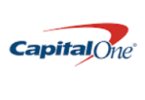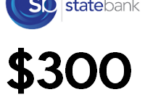Last week I asked on Twitter if anybody gets as excited for checking & savings bonuses as much as I do. There were a number of responses which made me realize that a lot of people have misconceptions about bank bonuses and how they work. I thought I’d address the most common misconceptions and try to convince you to give them a go.
Common Misconceptions
- I don’t want to waste a hard inquiry on a bank bonus, I’d prefer to sign up for a credit card instead. The vast majority of banks will not do a hard inquiry on your credit reports when you sign up for a new bank account, they will just check your ChexSystems report (which is basically the credit report of the deposit account world). We always list whether opening an account is a hard or soft pull on each post we do, there is also this dedicated page which lets you know if a bank does a hard or soft pull as well.
- I don’t want to change my payroll regularly. Most bank bonuses require you to receive a direct deposit of your paycheck or government benefit to trigger the bonus. Obviously it’s a pain changing your payroll details on a regular basis and the accounts department isn’t going to be thrilled if you’re doing this. Thankfully there are two solutions:
- The first solution is that not all bank bonuses require a direct deposit. If you only want to find bank bonuses that do not have a direct deposit requirement, go to this page and then sort by the “DD required field (click on it to sort).
- The second solution is that an ACH transfer will usually trigger this requirement. While almost all bonus pages will state it needs to be from employer or government, in reality an ACH transfer will usually cause the bonus to trigger. This isn’t always the case and sometimes some ACH transfers will count and others won’t, which is why we created this dedicated page containing data points on what does and doesn’t count as a direct deposit.
- You have to pay taxes on the bonuses. This is right, you’ll always be sent out a 1099-INT form at the end of the year and you’ll be required to pay taxes on any bank bonuses you receive. Obviously how much you pay will depend on your tax bracket, but I still find these deals worth doing and I pay a lot of tax – at the end of the day it’s all extra money in my pocket. There is an exception to this rule though, Citi doesn’t send out 1099-INT’s for their ThankYou point + American Airline offers.
Why You Should Give It A Go
Now that we’ve gone over the common misconceptions, let’s have a look at why you should give these bonuses a go:
- You can do these bonuses in your underpants. I’m a big fan of the underpants factor, anything that I can do at home in my underpants is very appealing. I’m a lazy person by nature so if I can avoid leaving my house to do manufactured spending or to earn a little extra money then I’m a happy man. Most bank bonuses can be completed without ever leaving your house. I typically do these bonuses when I’m bored watching trashy television, at least then I feel somewhat productive.
- You can fund most accounts with a credit card. Credit card sign up bonuses are great, one downside to them is that they come with a minimum spend requirement. Most bank accounts can be initially funded with a credit card which is very useful for meeting these minimum spend requirements. You can see a full list of what accounts can/can’t be funded here, along with the load limits and what has/hasn’t coded as a cash advance in the past. You can also go to the bank bonus page and sort by the amount that can be funded with a credit card.
- The bonuses can be quite high. A lot of people get turned off by the small bonuses and I agree, they suck. That being said the best bonuses are for 30,000 Miles/40,000 Points and even $400 in cold hard cash. If you just want to see the best bonuses, check out this page which we update monthly.
I made a lot of money from these bonuses last year, I’d recommend giving one a go to see how you like them. Have you tried one before? What did/didn’t you like about doing it? Has this post convinced you to give them a try? If not, why not!






